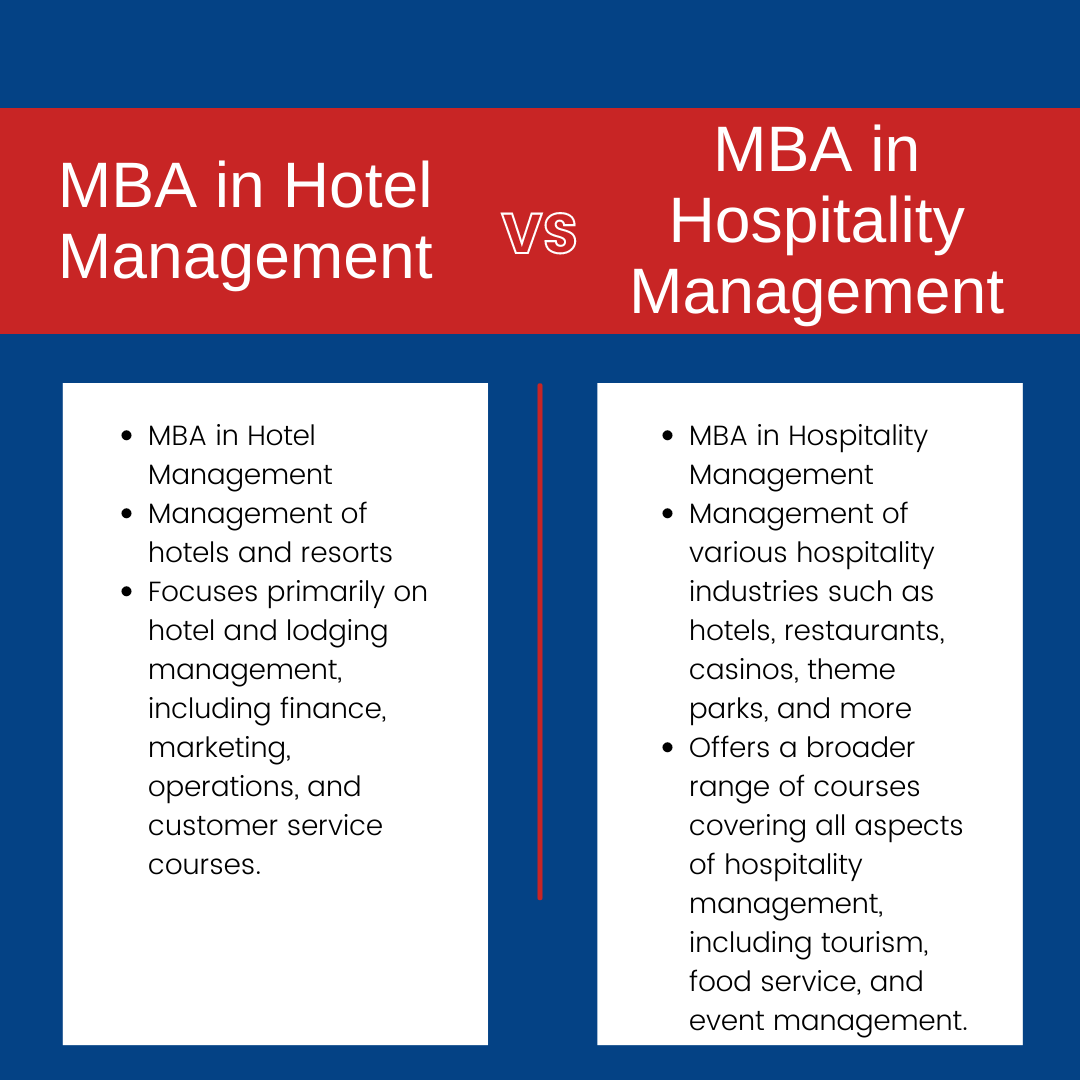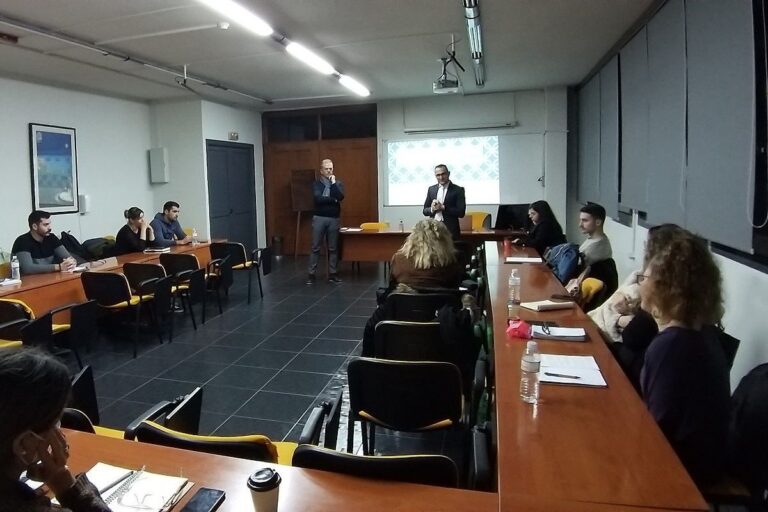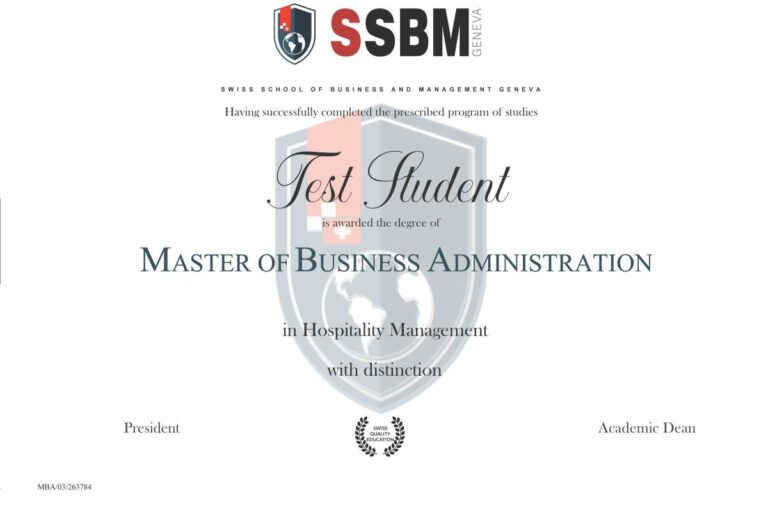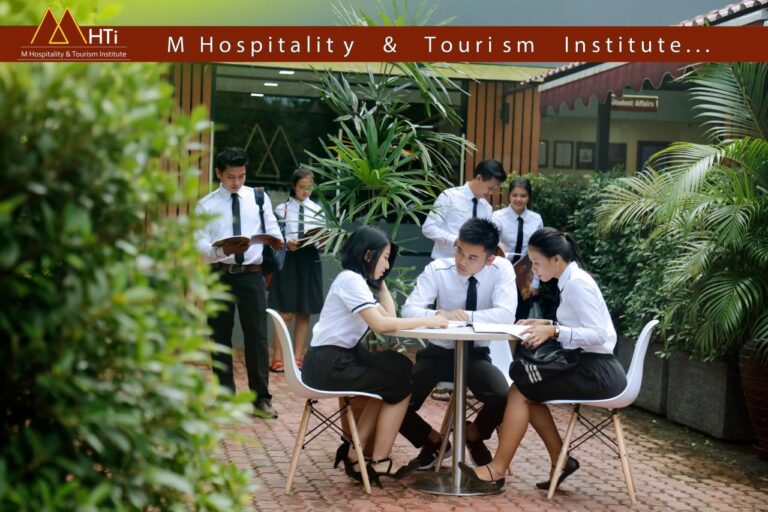Online MBA Hotel Operations A Comprehensive Guide
Online MBA hotel operations programs offer a dynamic pathway to success in the hospitality industry. This comprehensive guide delves into the curriculum, skill development, technological integration, financial strategies, marketing techniques, human resource management, sustainability considerations, and future trends shaping this exciting field. Whether you’re a seasoned professional seeking advancement or a recent graduate aiming for a fulfilling career, understanding the intricacies of online MBA hotel operations is key to navigating this competitive yet rewarding landscape.
The program typically covers a wide range of subjects, from revenue management and financial analysis to marketing and human resources. Unlike traditional on-campus programs, online MBAs offer flexibility and accessibility, allowing students to learn at their own pace and balance their studies with work and other commitments. Graduates are well-equipped for diverse roles within the hospitality sector, including hotel management, revenue management, marketing, and operations.
Introduction to Online MBA Hotel Operations Programs
Online MBA programs in hotel operations offer a flexible and convenient pathway to advanced management roles within the hospitality industry. These programs cater to working professionals seeking to enhance their skills and knowledge without disrupting their careers significantly. They combine rigorous academic study with practical application, preparing graduates for leadership positions in a dynamic and globally interconnected sector.The curriculum typically found in online MBA hotel operations programs is designed to provide a comprehensive understanding of all aspects of hotel management.
Curriculum of Online MBA Hotel Operations Programs
A typical curriculum includes core MBA subjects like finance, accounting, marketing, and strategic management, but tailored to the specific context of the hospitality industry. Students will delve into subjects such as revenue management, hotel operations management, human resource management in hospitality, sales and marketing strategies for hotels, and the legal and ethical considerations specific to the hotel sector.
Many programs also incorporate specialized electives allowing students to focus on areas of particular interest, such as sustainable hospitality, digital marketing in hospitality, or international hotel management. Case studies, simulations, and real-world projects often form a significant part of the learning experience, ensuring students can apply theoretical knowledge to practical scenarios. Furthermore, many programs integrate industry-specific software and technology training.
Comparison of Online and On-Campus MBA Hotel Operations Programs
While both online and on-campus MBA hotel operations programs aim to achieve similar learning outcomes, the learning experience differs significantly. On-campus programs offer face-to-face interaction with professors and peers, fostering a collaborative learning environment and immediate access to resources such as libraries and networking events. Online programs, conversely, provide flexibility and accessibility, allowing students to learn at their own pace and from any location with an internet connection.
The online format often leverages technology such as video conferencing, online discussion forums, and virtual simulations to replicate aspects of the on-campus experience. The choice between online and on-campus learning depends largely on individual learning styles, career commitments, and geographical constraints. Both formats offer valuable opportunities for career advancement, though the networking opportunities may be more readily available in the traditional on-campus setting.
Career Paths for Graduates of Online MBA Hotel Operations Programs
Graduates of online MBA hotel operations programs are well-equipped for a variety of leadership positions within the hospitality industry. Possible career paths include roles such as hotel general manager, revenue manager, director of operations, director of sales and marketing, food and beverage director, and human resources manager within hotel chains or independent hotels. The advanced skills and knowledge gained through the program also make graduates attractive candidates for consulting roles within the hospitality sector, working with hotels and other hospitality businesses to improve efficiency, profitability, and guest experience.
Furthermore, the strong business acumen developed through the program can open doors to broader management roles within the broader tourism and leisure industries. For example, a graduate might find themselves managing a resort, a conference center, or even a cruise line. The adaptability and strategic thinking fostered by the program equips graduates to thrive in a dynamic and ever-evolving industry.
Key Skills Developed in Online MBA Hotel Operations Programs
An online MBA in hotel operations equips students with a robust skillset encompassing both theoretical knowledge and practical application, preparing them for leadership roles within the dynamic hospitality industry. The program’s structure fosters the development of crucial soft skills alongside a deep understanding of hotel management principles. This combination ensures graduates are well-prepared to navigate the complexities of the modern hotel environment.Successful hotel managers require a blend of technical expertise and interpersonal abilities.
Online MBA programs in hotel operations effectively integrate these elements, leading to graduates who are not only knowledgeable but also highly effective communicators and collaborators.
Top Three Soft Skills Gained
Effective communication, strong leadership, and problem-solving skills are consistently cited as three of the most vital soft skills for success in hotel operations. These abilities are nurtured throughout the curriculum, integrating theoretical learning with practical application through simulations and real-world case studies. The online environment, while different from a traditional classroom, often fosters enhanced communication skills through various interactive tools and collaborative projects.
Practical Application of Hotel Management Principles
Online MBA programs in hotel operations utilize a variety of methods to ensure practical application of learned principles. These include case studies analyzing real-world hotel challenges, simulations replicating operational scenarios, and interactive exercises designed to reinforce key concepts. For instance, students might manage a virtual hotel, making decisions on staffing, pricing, marketing, and resource allocation, experiencing the direct consequences of their choices within the simulation.
This approach allows for risk-free experimentation and the development of critical decision-making skills in a controlled environment.
Examples of Real-World Projects and Simulations
One common example is a comprehensive revenue management simulation. Students are tasked with managing the pricing and inventory of a virtual hotel across different seasons and market conditions. They must analyze demand forecasts, competitor pricing, and operational costs to maximize revenue and occupancy. Another popular project involves developing a comprehensive marketing plan for a specific hotel brand, considering target audience segmentation, channel strategies, and budgeting considerations.
These projects often involve collaborative work, mirroring the team-based nature of hotel operations. Finally, many programs incorporate case studies based on real-life hotel challenges, such as managing a crisis situation (e.g., a sudden surge in bookings or a significant negative review online), requiring students to apply their knowledge to formulate effective solutions. These simulations and projects allow students to apply theoretical concepts in practical scenarios, strengthening their decision-making abilities and preparing them for the complexities of real-world hotel management.
Technological Aspects of Online Hotel Operations
The modern hotel industry relies heavily on technology to streamline operations, enhance guest experiences, and maximize profitability. This section explores the crucial role of various technological systems in online hotel operations, focusing on Revenue Management Systems (RMS) and Property Management Systems (PMS) and their integration within a typical hotel workflow.
Revenue Management Systems (RMS) in Hotel Operations
Revenue Management Systems (RMS) are sophisticated software solutions designed to optimize hotel pricing and inventory management. By analyzing various data points, including historical occupancy rates, demand forecasts, competitor pricing, and booking patterns, RMS helps hotels maximize revenue generation. Effective use of an RMS allows hotels to dynamically adjust room rates, ensuring they capture the highest possible revenue for each available room, at each point in time.
This dynamic pricing strategy allows hotels to react quickly to market fluctuations and seasonal changes in demand.
Comparison of Three RMS Platforms
The choice of RMS depends on a hotel’s size, budget, and specific needs. Below is a comparison of three popular platforms, illustrating their key features and capabilities. Note that features and pricing can change. This table offers a snapshot of current offerings.
| Feature | RMS Platform A | RMS Platform B | RMS Platform C |
|---|---|---|---|
| Pricing Optimization Algorithms | Sophisticated AI-driven algorithms, including machine learning | Rule-based pricing with some AI capabilities | Basic demand-based pricing |
| Integration Capabilities | Seamless integration with PMS, channel management systems, and CRM | Integrates with major PMS and channel management systems | Limited integration capabilities; may require custom solutions |
| Reporting and Analytics | Comprehensive reporting and data visualization tools | Standard reporting features; limited customization options | Basic reporting; limited analytical capabilities |
| Pricing Strategy Options | Offers a wide range of pricing strategies, including dynamic pricing, minimum stay restrictions, and package deals | Offers standard pricing strategies | Limited pricing strategy options |
Property Management Systems (PMS) and Integration
Property Management Systems (PMS) are the central nervous system of a hotel’s operations. They manage all aspects of guest reservations, from booking to check-out, including room assignments, billing, and guest communication. Modern PMS solutions often integrate with other hotel technologies, such as RMS, channel management systems (CMS), and customer relationship management (CRM) systems. This integration allows for a seamless flow of information, reducing manual data entry and improving operational efficiency.
For example, a PMS can automatically update room availability in real-time across all booking channels, preventing overbooking and ensuring accurate inventory management. Furthermore, integration with CRM systems allows hotels to personalize guest experiences and build stronger customer relationships.
Workflow Diagram: Hotel Check-in/Check-out Process
The following describes a typical hotel check-in/check-out process utilizing technology.[Descriptive text of a workflow diagram. The diagram would visually show the steps: Guest arrives, presents booking confirmation (online or printed), Front desk staff uses PMS to access reservation details and assign room, Guest receives key card/access code, Guest checks out, PMS generates bill, payment processed, guest feedback survey offered via email or in-app survey, data collected for analytics and revenue management] The process begins with the guest arriving at the hotel and presenting their booking confirmation.
The front desk staff uses the PMS to quickly access the reservation details, verify the guest’s identity, and assign a room. A key card or digital access code is issued to the guest. Upon check-out, the PMS generates the bill, which can be settled using various payment methods. Finally, a post-stay guest satisfaction survey might be sent via email or in-app communication to gather feedback and enhance future guest experiences.
The data collected is then used to inform revenue management strategies and improve overall hotel operations.
Financial Management in Hotel Operations

Effective financial management is crucial for the success and sustainability of any hotel operation. It involves a complex interplay of budgeting, revenue generation, and cost control, all working in concert to maximize profitability and ensure long-term viability. This section will explore key aspects of financial management within the hotel industry.
Budgeting Techniques in Hotel Operations
Budgeting is a cornerstone of financial planning in the hotel industry, providing a roadmap for resource allocation and performance measurement. Different budgeting techniques are employed, each with its own strengths and weaknesses, depending on the hotel’s size, operational complexity, and strategic goals.
- Incremental Budgeting: This traditional method uses the previous year’s budget as a base, adjusting it for anticipated changes in revenue and expenses. For example, a hotel might increase its marketing budget by 5% based on projected growth in occupancy rates. It is simple to implement but can be inflexible and may not reflect significant changes in the market or operational strategies.
- Zero-Based Budgeting (ZBB): This approach requires managers to justify every expense from scratch each year, starting with a “zero” base. This encourages a more critical evaluation of spending and can lead to greater efficiency. For instance, a hotel implementing ZBB might scrutinize its cleaning supplies budget, exploring cheaper alternatives without compromising hygiene standards.
- Activity-Based Budgeting (ABB): ABB links budget allocations to specific activities and their associated costs. A hotel could allocate a specific budget to each department based on its contribution to revenue generation, such as allocating a larger budget to the sales and marketing department during periods of low occupancy.
Revenue Generation Strategies for Hotels
Hotels employ diverse strategies to maximize revenue and occupancy rates. Understanding these strategies and their interplay is essential for effective financial management.
- Yield Management: This dynamic pricing strategy adjusts room rates based on demand, seasonality, and other factors. A hotel might charge higher rates during peak seasons and lower rates during off-peak periods to optimize revenue.
- Package Deals: Offering bundled services, such as accommodation, meals, and activities, can attract more guests and increase average revenue per guest. For example, a resort hotel might offer a “romantic getaway” package including a room, dinner, and spa treatments.
- Loyalty Programs: Rewarding repeat guests with discounts and exclusive benefits fosters customer loyalty and increases repeat business. A hotel chain might offer points for every stay, redeemable for free nights or upgrades.
- Strategic Partnerships: Collaborating with airlines, tour operators, or other businesses can expand the hotel’s reach and attract new customers. A hotel might partner with a local attraction to offer discounted combined tickets.
Cost Control and Efficiency in Hotel Operations
Controlling costs and improving operational efficiency are critical for maximizing profitability. This involves a multifaceted approach encompassing various aspects of hotel management.
- Energy Management: Implementing energy-efficient technologies, such as LED lighting and smart thermostats, can significantly reduce energy consumption and costs. For example, a hotel might invest in a building management system to optimize energy usage based on occupancy levels.
- Inventory Control: Efficient inventory management minimizes waste and ensures that supplies are available when needed. A hotel might use a computerized inventory system to track linen, toiletries, and other supplies, minimizing losses due to theft or spoilage.
- Staff Training and Optimization: Investing in staff training enhances productivity and reduces errors. A hotel might provide training on efficient cleaning techniques or customer service to improve efficiency and reduce labor costs.
- Technology Implementation: Utilizing technology such as Property Management Systems (PMS) and Revenue Management Systems (RMS) streamlines operations, improves efficiency, and reduces manual labor costs. A hotel implementing a PMS can automate tasks such as check-in/check-out and billing, freeing up staff for other duties.
Marketing and Sales Strategies for Hotels

Effective marketing and sales are crucial for hotel success in today’s competitive landscape. Hotels must leverage various strategies to attract guests, manage their online presence, and ultimately maximize revenue. This section explores key marketing and sales strategies, focusing on the impact of online travel agents and the development of a targeted marketing plan.
The Impact of Online Travel Agents (OTAs) on Hotel Marketing
Online Travel Agents (OTAs) such as Booking.com, Expedia, and Kayak have fundamentally reshaped the hotel industry’s marketing landscape. They provide a significant platform for hotels to reach a vast global audience, offering convenience and comparison shopping for travelers. However, this convenience comes at a cost. OTAs typically charge substantial commissions, impacting hotel profitability. Furthermore, hotels become reliant on OTA algorithms and marketing strategies, potentially losing direct control over their brand messaging and guest relationships.
Successfully navigating this landscape requires a balanced approach, leveraging OTAs for reach while simultaneously investing in direct booking strategies to minimize commission fees and strengthen customer loyalty. Hotels often employ strategies like offering exclusive deals and loyalty programs to encourage direct bookings.
A Marketing Plan for a Boutique Hotel Targeting Millennials, Online MBA hotel operations
This plan targets millennials (ages 25-40), known for their tech-savviness, experience-seeking nature, and preference for authenticity. The chosen boutique hotel is located in a vibrant, culturally rich city known for its art scene and culinary offerings.
- Target Audience: Millennials (25-40 years old) with a passion for travel, culture, and unique experiences; value authenticity and sustainability.
- Marketing Objectives: Increase brand awareness among the target demographic by 25% within six months, drive a 15% increase in direct bookings through the hotel website, and achieve a 10% improvement in guest satisfaction scores.
- Marketing Strategies:
- Social Media Marketing: Utilize Instagram and TikTok to showcase the hotel’s unique character, highlighting its design, location, and the local experiences it offers. Run targeted ad campaigns on these platforms, focusing on visually appealing content and influencer collaborations.
- Content Marketing: Create blog posts and articles about local attractions, cultural events, and sustainable travel practices. These will be shared across social media and the hotel website.
- Email Marketing: Build an email list through website sign-ups and social media contests. Send targeted emails showcasing special offers, upcoming events, and personalized recommendations based on past guest behavior.
- Search Engine Optimization (): Optimize the hotel’s website and online content for relevant s to improve search engine rankings. This will increase organic traffic to the hotel’s website.
- Partnerships: Collaborate with local businesses (restaurants, art galleries, etc.) to offer bundled packages and cross-promote services.
- Budget Allocation: Allocate budget proportionally across different marketing channels, prioritizing social media advertising and content creation.
- Measurement and Evaluation: Track key performance indicators (KPIs) such as website traffic, social media engagement, booking conversion rates, and guest satisfaction scores to assess campaign effectiveness and make data-driven adjustments.
Examples of Successful Digital Marketing Campaigns for Hotels
Many hotels have successfully implemented digital marketing campaigns. For example, a luxury hotel chain might use targeted advertising on platforms like Google Ads and Facebook, showcasing high-quality photography and videos of their amenities and services to attract high-spending clientele. Another example is a budget-friendly hotel chain that might leverage user-generated content on Instagram, encouraging guests to share their experiences using a branded hashtag.
This builds authenticity and social proof, driving bookings organically. A third example could be a boutique hotel that partners with local influencers to create sponsored content, showcasing the hotel’s unique personality and surrounding attractions to a niche audience. The success of these campaigns often relies on a strong understanding of the target audience and the ability to tailor messaging and visuals accordingly.
Human Resource Management in the Hotel Industry
Effective human resource management is crucial for the success of any hotel. A well-trained, motivated, and engaged workforce directly impacts guest satisfaction, operational efficiency, and ultimately, profitability. This section will explore key strategies for recruiting, retaining, and developing hotel employees.
Strategies for Recruiting and Retaining Hotel Employees
Attracting and keeping top talent in the competitive hospitality industry requires a multifaceted approach. Competitive compensation and benefits packages are foundational, but equally important are opportunities for career advancement, a positive work environment, and a strong company culture. Recruitment strategies should leverage both traditional methods, such as job boards and university partnerships, and modern approaches, including social media recruitment and targeted online advertising.
Retention strategies focus on fostering employee engagement through regular feedback, opportunities for professional development, and recognition of achievements. Implementing employee assistance programs and promoting work-life balance also contribute significantly to employee satisfaction and longevity. For example, a luxury hotel chain might offer tuition reimbursement and leadership training programs to attract and retain ambitious employees, while a budget-friendly hotel could focus on flexible scheduling and team-building activities to create a positive work environment.
The Importance of Employee Training and Development in Hotel Operations
Ongoing employee training and development are not merely beneficial; they are essential for maintaining high service standards, improving operational efficiency, and ensuring guest satisfaction. Training programs should be tailored to specific roles and responsibilities, covering everything from basic customer service skills to advanced technical procedures. Regular refresher courses and opportunities for upskilling and cross-training enhance employee competency and adaptability.
Investing in employee development demonstrates a commitment to their growth and career progression, boosting morale and retention rates. Furthermore, well-trained employees are better equipped to handle challenging situations, resolve guest complaints effectively, and contribute to a more positive and productive work environment. This translates directly to increased efficiency, reduced operational costs, and improved guest satisfaction scores.
Sample Employee Training Program for Front Desk Staff
A comprehensive training program for front desk staff should cover a range of essential skills and knowledge. The following table Artikels a sample program:
| Training Module | Duration (Hours) | Description | Assessment Method |
|---|---|---|---|
| Hotel Property Management System (PMS) Training | 8 | Comprehensive training on the hotel’s PMS, including reservations, check-in/check-out procedures, guest folio management, and reporting. | Practical exercises and proficiency test. |
| Customer Service Skills | 4 | Focus on effective communication, conflict resolution, and handling guest complaints. Role-playing scenarios will be included. | Observation during role-playing and feedback sessions. |
| Hotel Policies and Procedures | 2 | Detailed explanation of hotel policies regarding guest services, safety procedures, and emergency protocols. | Written test on hotel policies and procedures. |
| Sales and Upselling Techniques | 4 | Training on effectively promoting hotel amenities and services, including upselling techniques and handling guest inquiries. | Practical exercises and sales simulations. |
Sustainability and Ethical Considerations in Hotel Operations: Online MBA Hotel Operations
The hospitality industry is increasingly recognizing the importance of integrating sustainable practices and ethical considerations into its operations. Consumer demand for eco-friendly and socially responsible businesses is growing, impacting profitability and brand reputation. Furthermore, regulations and industry standards are pushing hotels towards greater accountability in their environmental and social impact. This section will explore the key aspects of sustainability and ethical conduct within hotel operations.
Sustainable practices in the hospitality sector encompass a wide range of initiatives aimed at minimizing environmental impact and maximizing resource efficiency. These efforts not only contribute to a healthier planet but also often lead to cost savings and improved operational efficiency for hotels. Ethical considerations, on the other hand, focus on responsible data handling, fair labor practices, and community engagement, ensuring the hotel operates with integrity and respect for all stakeholders.
Environmentally Friendly Hotel Initiatives
Many hotels are actively implementing environmentally friendly initiatives to reduce their carbon footprint and conserve resources. These initiatives often include energy-efficient technologies such as LED lighting and smart thermostats, water conservation measures like low-flow showerheads and water recycling systems, and waste reduction programs emphasizing recycling and composting. Some hotels are also investing in renewable energy sources, such as solar panels, to power their operations.
For example, the Park Hyatt Zurich has implemented a comprehensive sustainability program that includes using locally sourced food, reducing water consumption through efficient fixtures, and using renewable energy sources. Similarly, the Mandarin Oriental, Hong Kong has achieved significant reductions in energy and water consumption through various energy efficiency upgrades and waste management initiatives. These are just a few examples of how hotels are integrating sustainable practices into their daily operations.
Data Privacy and Customer Information
Ethical considerations regarding data privacy and customer information are paramount in the hotel industry. Hotels collect vast amounts of personal data from guests, including booking details, payment information, and preferences. Protecting this data from unauthorized access and misuse is crucial for maintaining guest trust and complying with data protection regulations such as GDPR (General Data Protection Regulation) and CCPA (California Consumer Privacy Act).
Hotels must implement robust data security measures, including encryption, access controls, and regular security audits, to safeguard sensitive guest information. Transparency in data collection and usage practices is also vital, ensuring guests are aware of how their data is being handled and have control over their personal information. Failure to uphold data privacy can result in significant financial penalties, reputational damage, and loss of customer trust.
Implementing clear data privacy policies, providing guests with choices regarding data usage, and ensuring staff are adequately trained on data protection protocols are essential steps for hotels to maintain ethical standards.
Future Trends in Hotel Operations

The hotel industry is in constant flux, driven by technological advancements, evolving guest expectations, and global economic shifts. Understanding and adapting to emerging trends is crucial for hotels to remain competitive and profitable in the years to come. This section will explore three key trends shaping the future of hotel operations, focusing on the impact of artificial intelligence and blockchain technology.
Hyper-Personalization and Customized Experiences
The modern traveler seeks unique and tailored experiences. Hotels are increasingly leveraging data analytics and AI to understand individual guest preferences and deliver hyper-personalized services. This extends beyond simply remembering a guest’s name; it involves anticipating needs, offering customized room amenities, and suggesting relevant activities based on past behavior and stated preferences. For example, a hotel might automatically adjust room temperature and lighting based on a guest’s previous settings, or suggest local restaurants based on their dietary restrictions and past dining choices.
This level of personalization fosters loyalty and enhances guest satisfaction, ultimately driving repeat business.
The Rise of Artificial Intelligence in Hotel Operations
Artificial intelligence is rapidly transforming various aspects of hotel operations. AI-powered chatbots provide 24/7 guest service, answering queries, processing requests, and resolving issues efficiently. AI algorithms optimize pricing strategies, maximizing revenue by analyzing demand patterns and competitor pricing. Furthermore, AI-driven predictive maintenance systems analyze sensor data from hotel equipment to anticipate potential malfunctions, minimizing downtime and reducing maintenance costs.
For instance, an AI system might predict a potential HVAC failure days in advance, allowing for proactive maintenance and preventing guest discomfort. This proactive approach not only improves operational efficiency but also enhances the overall guest experience.
Blockchain Technology Enhancing Hotel Security and Transparency
Blockchain technology, known for its secure and transparent nature, offers significant potential for enhancing hotel security and operations. It can be used to create secure digital identities for guests, streamlining check-in and check-out processes and reducing the risk of fraud. Furthermore, blockchain can improve the transparency of hotel pricing and booking systems, ensuring fair pricing and preventing manipulation.
Imagine a system where guest reviews and ratings are stored on a blockchain, making them tamper-proof and providing guests with greater confidence in the authenticity of online reviews. This increased transparency builds trust and strengthens the hotel’s reputation. Similarly, blockchain can be used to secure payment transactions, reducing the risk of payment fraud and enhancing the overall security of financial transactions within the hotel.
Last Recap
In conclusion, pursuing an Online MBA in Hotel Operations provides a powerful blend of theoretical knowledge and practical application, preparing graduates for leadership roles in the dynamic hospitality industry. By mastering key skills in financial management, marketing, technology, and human resources, alongside an understanding of sustainability and ethical considerations, individuals can thrive in this ever-evolving sector. The flexibility of online learning further empowers professionals to achieve their career aspirations while maintaining a work-life balance.
The future of hotel operations is bright, and an online MBA provides the necessary tools to navigate it successfully.
Essential Questionnaire
What are the admission requirements for online MBA hotel operations programs?
Admission requirements vary by institution but generally include a bachelor’s degree, GMAT or GRE scores (sometimes waived), professional experience (often preferred), and letters of recommendation.
How long does it typically take to complete an online MBA in hotel operations?
Program lengths vary, but most online MBA programs can be completed in 18-24 months, depending on the program structure and the number of courses taken per term.
What is the average salary for graduates of online MBA hotel operations programs?
Salaries depend on experience, location, and specific role, but graduates often command competitive salaries within the hospitality industry, often exceeding those of graduates without an MBA.
Are there scholarships or financial aid options available for online MBA hotel operations programs?
Many institutions offer scholarships, grants, and loans to eligible students. It’s recommended to check directly with the program or university for available financial aid opportunities.
What are the career prospects after completing an online MBA in hotel operations?
Graduates can pursue careers as hotel managers, revenue managers, marketing managers, operations managers, and various other leadership roles within the hospitality sector.





